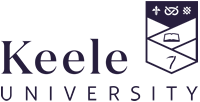Autophagy is the natural process by which cells degrade and recycle proteins and other components, and also allows the turnover of damaged materials which can accumulate and cause problems for the cell. Defects in autophagy have been linked to various diseases and interest in modulating autophagy has grown rapidly.
Autophagy is an adaptive response to cell stress, by which the breakdown of cellular components promotes cell survival by maintaining energy levels in the cell. During autophagy, molecules and organelles within the cell are captured in autophagosomes, specialised vesicles which fuse with lysosomes leading to the degradation of their cargo. The formation of autophagosomes is a crucial step in autophagy and is controlled by a family of “Atg” proteins and Atg5 and Atg16, in particular, regulate the nucleation, extension and closure of the membrane around the autophagosome.
Autophagy represents a valid target for drug development. Cancer cells use autophagy to survive adverse conditions such as nutrient deprivation, hypoxia and low pH. It also contributes to resistance to chemotherapy. Notably, pancreatic tumours seem particularly dependant on autophagy. Several studies have shown that silencing of the core autophagy machinery in pancreatic tumour cells prevents the development of malignant tumours in mice. Furthermore, inhibition of autophagy sensitises these cells to anti-cancer drugs. We have discovered compounds that inhibit the complexation of Atg5 and Atg16 which is potentially useful in the treatment of pancreatic cancer, either alone or in combination with other chemotherapies.
These compounds inhibit autophagy and are cytotoxic in pancreatic cells. We propose to finalize development of the drug discovery screening cascade and improve the potency of the compounds so that they are ready for subsequent lead optimization studies.
Please quote FMHS_TCJULY2022, to ensure your application is considered for the funded studentship.

 Continue with Facebook
Continue with Facebook



